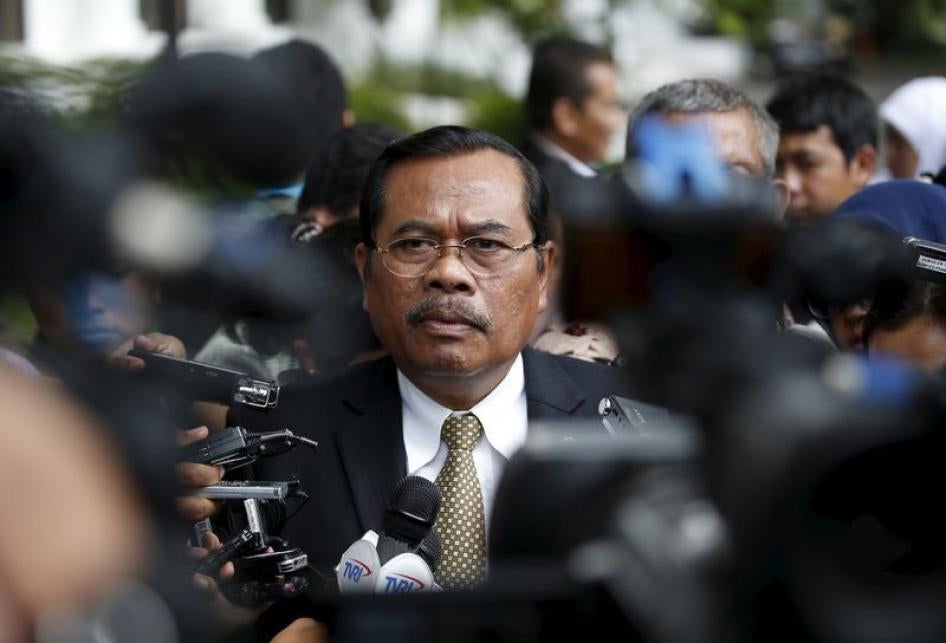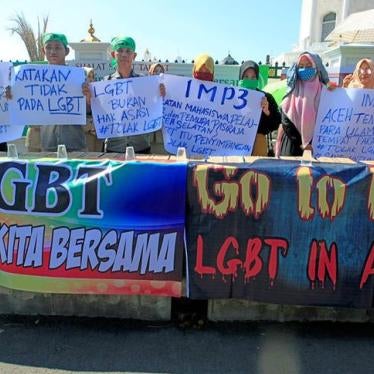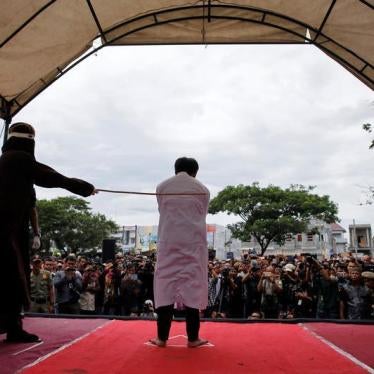The Indonesian government is backing away from commitments to provide accountability for grave past human rights abuses.
Indonesia’s Attorney General H.M. Prasetyo dismissed a report on past rights abuses compiled by the official National Commission on Human Rights and submitted to his office as “opinions and assumptions.” Prasetyo also noted the difficulties in investigating decades’ old cases, including that witnesses and perpetrators may no longer be alive, but said nothing about overcoming those obstacles and achieving justice for the victims and their families. More than anything else, this speaks volumes about the government’s lack of enthusiasm for pursuing accountability for past atrocities.
The government has been silent on plans announced in May 2015 for a “reconciliation commission” that would pursue a “permanent solution for all unresolved human rights abuses” of the past half-century. Those abuses include the government-orchestrated massacres of 1965-66 that resulted in up to one million deaths, violations by government security forces in the restive provinces of Papua and West Papua, and a campaign of extrajudicial killings linked to security forces between 1982 and 1985 known as the Petrus shootings.
President Joko “Jokowi” Widodo had originally assigned his then-security minister, Luhut Binsar Pandjaitan, to oversee that process. But Jokowi’s replacement of Pandjaitan in July 2016 with former general Wiranto, who was indicted for crimes against humanity in East Timor by a United Nations-sponsored tribunal, has fueled doubts about his government’s commitment to the accountability process.
Jokowi supporters have told Human Rights Watch that in the run-up to the presidential elections in 2019, the president should avoid potentially divisive issues such as accountability for past human rights abuses. But this ignores the importance for victims and the rule of law of holding those most responsible for serious crimes to account. Jokowi should instead recognize that he has a historic opportunity to start the process of bringing meaningful justice to the huge number of Indonesians affected by past rights violations and direct his attorney-general to facilitate that process rather than bemoan its challenges.








